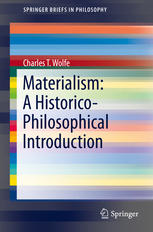

Most ebook files are in PDF format, so you can easily read them using various software such as Foxit Reader or directly on the Google Chrome browser.
Some ebook files are released by publishers in other formats such as .awz, .mobi, .epub, .fb2, etc. You may need to install specific software to read these formats on mobile/PC, such as Calibre.
Please read the tutorial at this link: https://ebookbell.com/faq
We offer FREE conversion to the popular formats you request; however, this may take some time. Therefore, right after payment, please email us, and we will try to provide the service as quickly as possible.
For some exceptional file formats or broken links (if any), please refrain from opening any disputes. Instead, email us first, and we will try to assist within a maximum of 6 hours.
EbookBell Team

4.7
26 reviewsThis book provides an overview of key features of (philosophical) materialism, in historical perspective. It is, thus, a study in the history and philosophy of materialism, with a particular focus on the early modern and Enlightenment periods, leading into the 19th and 20th centuries. For it was in the 18th century that the word was first used by a philosopher (La Mettrie) to refer to himself. Prior to that, ‘materialism’ was a pejorative term, used for wicked thinkers, as a near-synonym to ‘atheist’, ‘Spinozist’ or the delightful ‘Hobbist’. The book provides the different forms of materialism, particularly distinguished into claims about the material nature of the world and about the material nature of the mind, and then focus on materialist approaches to body and embodiment, selfhood, ethics, laws of nature, reductionism and determinism, and overall, its relationship to science. For materialism is often understood as a kind of philosophical facilitator of the sciences, and the author want to suggest that is not always the case. Materialism takes on different forms and guises in different historical, ideological and scientific contexts as well, and the author wants to do justice to that diversity. Figures discussed include Lucretius, Hobbes, Gassendi, Spinoza, Toland, Collins, La Mettrie, Diderot, d’Holbach and Priestley; Büchner, Bergson, J.J.C. Smart and D.M. Armstrong.